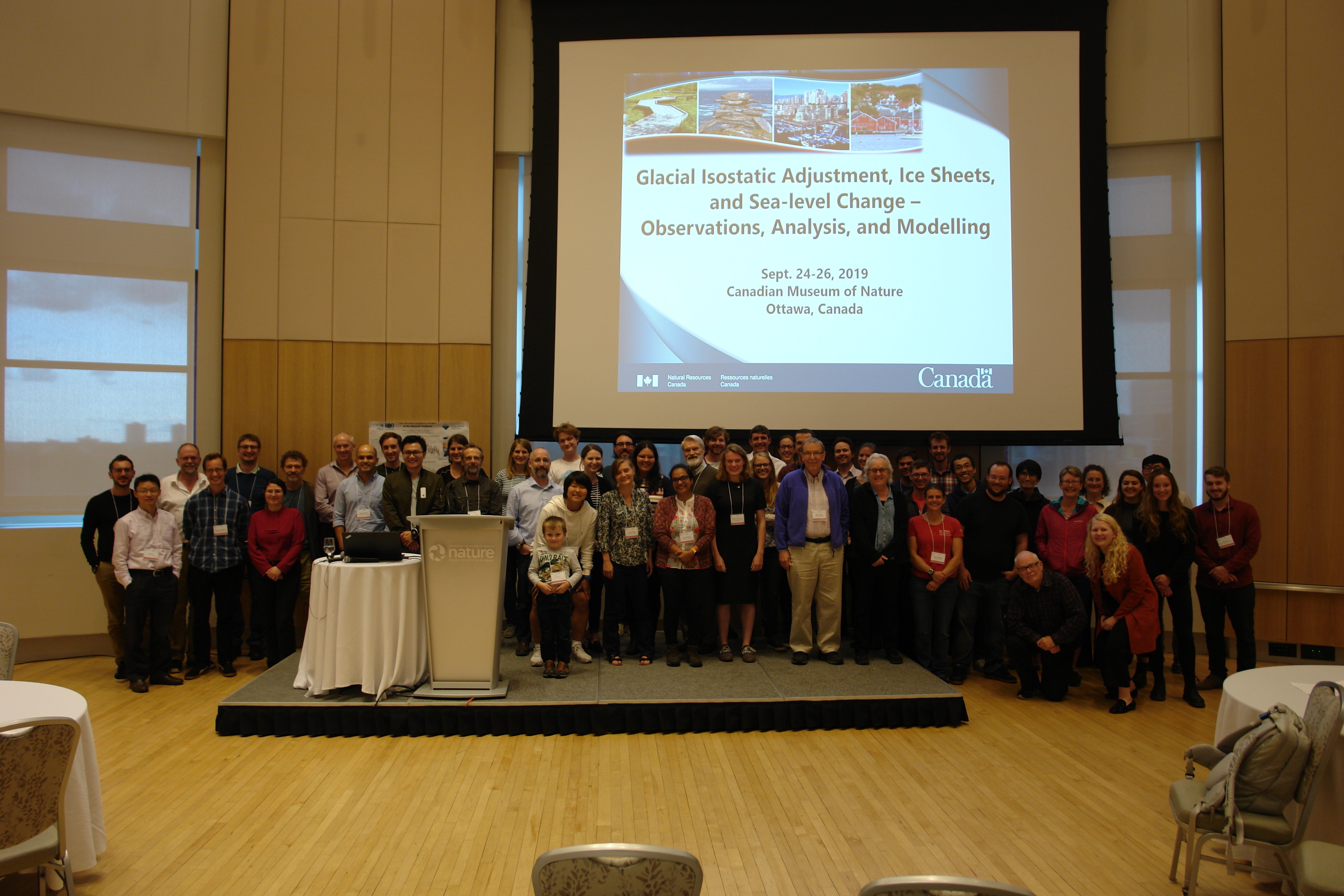Ice, earth, and water: Understanding polar connections through the Glacial Isostatic Adjustment, Ice Sheets, and Sea-Level Workshop
Authors
- E. Arsenault, Polar Knowledge Canada, Canadian High Arctic Research Station, Ottawa, Ontario, Canada, emma.arsenault@polar.gc.ca
- T. James, Natural Resources Canada, Ottawa, Ontario, Canada
- G. Song, Polar Knowledge Canada, Canadian High Arctic Research Station, Ottawa, Ontario, Canada
Citation information
Arsenault, E., James, T. and Song, G. 2020. Ice, earth and water: Understanding polar connections through the Glacial Isostatic Adjustment, Ice Sheets, and Sea-Level Workshop. Polar Knowledge: Aqhaliat Report, volume 3, Polar Knowledge Canada, p. 39–40. DOI: 10.35298/pkc.2020.10.eng
Article
International cooperation and governance in both the Arctic and Antarctic has grown out of a long history of scientific activity in these regions. To this day, science remains the foundation of constructive collaboration in the polar regions. In an era of global connections, science also provides a lens for us to understand the similarities between different polar environments, as well as the influence these regions have on global climate systems. The Glacial Isostatic Adjustment (GIA), Ice Sheets, and Sea-Level Workshop (held in Ottawa, Ontario, in September 2019) demonstrated the unifying role science plays by bringing together more than 60 researchers and decisionmakers from over a dozen countries. Attendees addressed the current state of GIA knowledge, which describes the interactions between ice sheets and the solid earth. A better understanding of GIA will contribute to more robust projections of sea-level rise which are needed to protect the future health and safety of coastal communities.
The GIA Workshop convened experts in the fields of geophysics, glaciology, geology, and environmental science to describe their research on changes to past, present, and future ice sheets and glaciers, as well as Earth's ongoing response to these changes. Global ocean systems are also tied to these ice and earth dynamics (i.e., changes to sea level are brought about by changes in the amount of water that is in the ocean and by the vertical land motion induced by changes in the surface loads caused by fluctuating glaciers and ice sheets).
Creating space for discussion and collaboration between these research fields is necessary to understand the combined impact of these processes on both regional and global scales. Together, data on ice sheet dynamics, solid earth response and sea-level change, provide a better understanding of how polar regions are responding and contributing to changes in global climate and ocean systems.
While Antarctic ice sheets are a substantial source of potential sea-level rise, the Arctic is also experiencing dramatic changes to its ice environments. The GIA Workshop not only demonstrated correlations between polar regions brought about by changing sea levels. It also emphasized the global nature of GIA investigations, where advances in techniques, analysis, and understanding are readily transferred and applied to both Artic and Antarctic regions. Identifying the underlying mechanisms and potential impacts of these interactions requires further collaboration between researchers focussing on Arctic and Antarctic regions.
With a mandate to promote the development and dissemination of knowledge on circumpolar regions (including Antarctica and the Southern Ocean), Polar Knowledge Canada (POLAR) is working towards providing more support to Canadian Antarctic researchers. POLAR promotes Canadian Antarctic research interests internationally through its sustained engagement in Antarctic scientific, operational, and governance organizations. Domestically, POLAR works with other federal departments and agencies, and the Canadian Committee on Antarctic Research, to coordinate Canada's activities in Antarctica. As a means to advance Canadian contributions to Antarctic research, POLAR will continue to highlight the potential that Antarctic research has in enhancing our understanding of both polar regions, as well as the impact that global environmental changes, such as sea-level rise, will have on all Canadians.

Figure 1: GIA workshop participants gather for a group photo at the Canadian Museum of Nature. More than 60 researchers and decision-makers from over a dozen countries participated in the workshop.
Polar Knowledge Canada
For media inquiries, contact:
communications@polar-polaire.gc.ca
Page details
- Date modified: